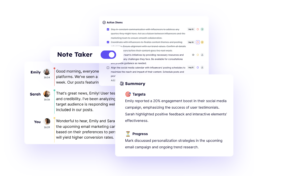Have you ever noticed that you are perhaps a little too obsessed with time? Well, know this: many life experiences and events can develop time anxiety in you. However, it shouldn’t take a toll on your life and deprive you of life’s beauty and all the simple human joys. That’s why we created this article to inform you about what time anxiety is, what its earliest signs are, and how you can manage them.
What is Time Anxiety?
Time anxiety, often referred to as chronophobia, is an overwhelming fear of time—either of it slipping away too quickly or passing too slowly.
Chronophobia is more commonly associated with specific life scenarios, such as when someone is confined or feels a lack of control over their environment. For example, astronauts in isolated environments or individuals in quarantine during global events might experience chronophobia as they grapple with the fear of wasted time and restricted freedom.
On the other hand, time anxiety may manifest in everyday life, creating a sense of urgency that disrupts your well-being.
This mindset can lead to stress, diminished productivity, and a struggle to enjoy the present moment. So how do you know whether you have time anxiety or not?
5 Time Anxiety Symptoms
Recognizing the symptoms of time anxiety is the first step toward addressing it. These signs often sneak into your daily routine, shaping how you think, act, and even plan your day.
Constantly Worrying You’ll be Late
Do you often feel anxious about being on time, even when you have plenty of it to spare and get ready? This fear of being late can become a repetitive thought cycle, keeping you on edge and unable to relax.
Rushing Without Knowing
You may find yourself rushing through tasks or events, not because you’re short on time, but because the thought of wasting time terrifies you. This can leave you feeling unfulfilled and disconnected from the moment.
Overplanning And Underperforming
Do you make detailed plans but fail to complete them effectively? Overplanning can stem from a fear of not being prepared, but it can also restrict your ability to meet deadlines or adapt to changes.

Inability to Make Confident Decisions
Time stress can make decision-making feel like a monumental task. You might delay choices out of fear of wasting time on the wrong option, further adding to your stress.
Having FOMO For a Lot of Things
The fear of missing out ties directly to time anxiety. For example, you might feel pressured to attend every social event, fearing that you’ll miss something important. Or, you may see a friend’s vacation photos online and suddenly feel like you’re not making the most of your time.
Professionally, noticing others’ career milestones might trigger anxiety about your own progress. This constant comparison can leave you stressed and chasing activities that don’t align with your personal goals.
Now, what are the root causes of such symptoms? Let’s find out.
Why You Actually Have a Phobia of Time Passing
Time anxiety doesn’t appear out of nowhere—it often has deep-rooted causes tied to your personality, habits, and even life experiences. Understanding these triggers can help you identify why the fear of time passing feels overwhelming and pave the way to addressing it.
1. People-Pleasing Tendencies
Do you say yes to everything, fearing the disappointment of others? This constant need to please can lead to a packed schedule, making it hard to enjoy your time or set healthy boundaries.
2. Peaking Anxiety or Depression
Underlying mental health issues can amplify time anxiety, creating a sense of urgency and worry. For instance, generalized anxiety disorder (GAD) might cause constant overthinking about how to manage your day effectively, while social anxiety can make you feel pressured to meet expectations or avoid disappointing others. Performance anxiety, on the other hand, often fuels fears of failing to meet deadlines or achieve personal goals, leaving you stuck in a cycle of procrastination and self-doubt.
3. Lack of Priorities
Without clear priorities, every task can feel equally urgent. This leads to disorganization and increased stress about allocating your time effectively.
4. No Boundaries With People
If you struggle to say no, you’ll often feel overwhelmed by commitments. Learning to set boundaries and prioritize your needs is essential for managing time-related stress.

5. Too Many Distractions (Information Overload)
With constant notifications and endless content online, it’s easy to feel overstimulated. Excessive screen time and anxiety are closely linked, as distractions can rob you of your focus and heighten time-related fears.
6. There’s Fear of Failure
The fear of not achieving your goals within a certain timeframe can be paralyzing. This fear often prevents you from starting tasks, further feeding your anxiety.
“Now what?” you may ask, “what should I do?” Now that you know all the causes of time anxiety, the depressive part is over. Let’s cheer up a little because there are practical ways to rid ourselves of this monster and live a fulfilled life.
How to Deal With Time Anxiety: 7 Proven Ways
Managing time stress may feel overwhelming, but with the right strategies, you can regain control and find balance.
1. Dedicate Time for Meaningful Activities
The definition of a “meaningful activity” can vary from person to person. You need to understand what brings you relief, joy, and mental peace.
For one, it may be walking in nature or just routinely walking, for another it can be attending singing or dance classes, for others, reading.
Focus on hobbies or activities that bring you a sense of liberation from everyday hustles, such as gardening, or cooking. These activities can ground you in the present moment and reduce stress.
Schedule these activities in your calendar and they’ll blend into your everyday activities. Over time, they’ll become an inseparable part of your life.
2. Pay Attention to Your Physical and Mental Health
Your physical and mental health are deeply intertwined, and neglecting one can often impact the other.
When you’re feeling anxious about time, your body can respond with tension, fatigue, or even physical conditions. Thus, poor physical health can amplify mental stress and make it harder to manage anxiety.
Mental Health
Taking care of your body and mind doesn’t have to be complicated. Start with small, manageable steps: engage in mindfulness practices like deep breathing to calm your racing thoughts.
Physical Health
Regular exercise, even something as simple as a 20-minute walk outdoors, can release endorphins that naturally improve your mood and reduce stress. Start moving your body in ways that fit into your lifestyle: gym, at-home exercises, walking, running, swimming—the choice is yours. Pair these habits with a healthy diet rich in nutrients that fuel both your body and brain—foods like leafy greens, nuts, and omega-3-rich fish are great choices.

Additionally, prioritize restful sleep, as poor sleep often worsens time anxiety by affecting your focus and ability to manage daily tasks. By making your health a priority, you create a stronger foundation for handling time-related stress and find it easier to live in the moment.
3. Keep an Anxiety Journal and Talk to the Right Professional
Writing about your feelings and taking detailed notes can help you identify triggers and patterns. Additionally, seeking guidance from a therapist or counselor can provide personalized strategies to manage your time anxiety. Finding a professional or institution you can trust and depend on is crucial.
4. Limit Screen Time
Excessive screen time, especially on social media, can contribute to time anxiety by creating a false sense of urgency or inadequacy. Setting specific limits on daily screen usage can help you reclaim time for more meaningful activities and reduce stress.
Remember that online realities are mostly curated and much different than real life.
5. Learn How to Prioritize Tasks
Feeling overwhelmed by time anxiety often stems from not knowing where to start or what to focus on. Adopting effective prioritization methods, like the Eisenhower Matrix, can help you regain clarity and reduce unnecessary stress.
This simple tool divides tasks into four categories: urgent and important, not urgent but important, urgent but not important, and neither urgent nor important.
For example:
- Tasks in the “urgent and important” category should be tackled immediately, such as meeting a pressing deadline,
- “Not urgent but important” tasks, like planning long-term projects or investing in self-development, can be scheduled for later,
- “Urgent but not important” tasks, like answering non-essential emails, can be delegated when possible,
- Tasks falling under “neither urgent nor important” can be eliminated to free up valuable time.
In addition to the Eisenhower Matrix, you can explore methods like the Pomodoro Technique for focused work sessions, time-blocking to schedule tasks effectively, and the Pareto Principle to prioritize efforts that yield the greatest results.
6. Create SMART Goals
Setting Specific, Measurable, Achievable, Relevant, and Time-bound goals can give you a clearer sense of direction, making it easier to tackle tasks without feeling overwhelmed. Here’s how SMART goals work:
Specific
Clearly define what you want to achieve, like completing a draft instead of vaguely “finishing a project.”
Measurable
Set a way to track progress, such as writing 500 words daily.
Achievable
Make your goal realistic, like dedicating one focused hour if your schedule is tight.
Relevant
Ensure it aligns with your personal or professional priorities.
Time-bound
Set a deadline, like submitting your draft by Friday.
Such a framework will help you transform vague ambitions into actionable plans. Thus you’ll gain clarity that reduces the mental clutter feeding time anxiety.
7. Avoid Multitasking
Contrary to popular belief, multitasking often reduces productivity and increases stress. Concentrate on one task at a time to maximize your efficiency and reduce anxiety of finishing everything at one time.
Beating Time Anxiety at Work
In a fast-paced work environment, time anxiety can feel especially overwhelming.
Tools like Krisp’s AI Meeting Assistant can help you regain control and manage work stress effectively. It ensures you never miss important details in meetings and calls, allowing you to stay present instead of scrambling to take notes. Krisp can particularly help you reduce anxiety regarding
- Meeting noise,
- Meeting agendas and notes,
- Meeting summaries and action items,

Krisp’s Meeting Transcription feature automatically generates clear and accurate transcripts, helping you plan, organize, and run meetings more efficiently. As a result, it reduces the stress that contributes to time anxiety.
Conclusion
Time anxiety can feel like a heavy weight, constantly urging you to rush or reminding you of what’s slipping away. But this feeling doesn’t have to define your life.
The key takeaway? You have the power to shape your relationship with time. Through intentional habits, mindful choices, and prioritizing what truly matters, you can find balance and reclaim the joy in each moment. Remember, time isn’t just something to manage—it’s an opportunity to live meaningfully. Start small, stay consistent, and trust that even incremental changes will lead to a life where time anxiety no longer rules your days.
Frequently Asked Questions


